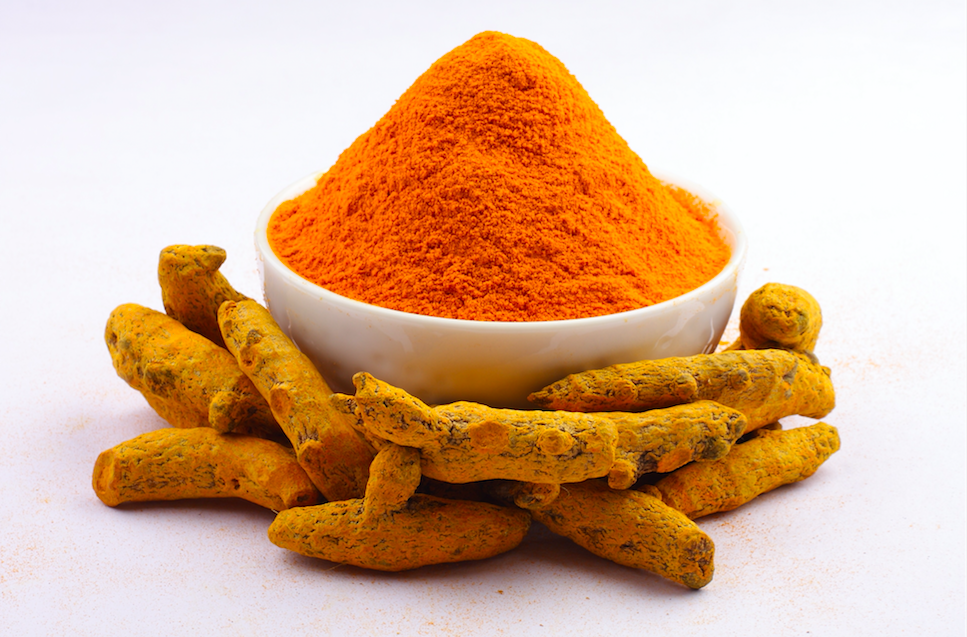So what is with the Asian spice turmeric – touted a superfood – true or false? Clinical research has been endless and results are so positively “Super” – make sure you are getting your daily intake (However, it stains everything – beware!)
Turmeric (Curcuma longa), the bright yellow of the spice rainbow, is a powerful medicine that has long been used in the Chinese and Indian systems of medicine as an anti-inflammatory agent to treat a wide variety of conditions, including flatulence, jaundice, menstrual difficulties, bloody urine, haemorrhage, toothache, bruises, chest pain, and colic.
The volatile oil fraction of turmeric has demonstrated significant anti-inflammatory activity.
Even more potent is the yellow or orange pigment of turmeric, which is called curcumin. Curcumin is thought to be the primary pharmacological agent in turmeric. In numerous studies, curcumin’s anti-inflammatory effects have been shown to be comparable to the potent drugs hydrocortisone and phenylbutazone as well as over-the-counter anti-inflammatory drugs.
As an antioxidant, curcumin is able to neutralize free radicals, chemicals that can travel through the body and cause great amounts of damage to healthy cells and cell membranes. This is important in many diseases, such as arthritis, where free radicals are responsible for the painful joint inflammation and eventual damage to the joints.
Curcumin also helps the body to destroy mutated cancer cells, so they cannot spread through the body and cause more harm. A primary way in which curcumin does so is by enhancing liver function.
Epidemiological studies have linked the frequent use of turmeric to lower rates of breast, prostate, lung and colon cancer; laboratory experiments have shown curcumin can prevent tumours from forming; and research conducted at the University of Texas suggests that even when breast cancer is already present, curcumin can help slow the spread of breast cancer cells to the lungs in mice.
Growing evidence suggests that turmeric may afford protection against neurodegenerative diseases like alzheimers.
The most active ingredient in turmeric root, bisdemethoxycurcumin, boosts the activity of the immune system in Alzheimer’s patients, helping them to clear the amyloid beta plaques characteristic of the disease.
Daily-recommended dosage:
Cut fresh root 1.5g – 3g
Dried powder 1g – 3 g
Supplement 1.2g – 1.8g (capsules recommended rather than tablet)
Try to always include some black pepper and a fat for optimum absorption.
Add the root or powder it to a fresh juice or smoothie.
Put it in your meals – rice, quinoa, stir-fries, soups, curries, eggs (any style), or sprinkle powder over any dish whilst cooking it.
“Super Spring Foods” workshop – Portals Nous Tuesday 12 April 2-4pm 35€ per person (Taste, learn and feel inspired)
Contact Suzanne tel: 647397501














0 Comments